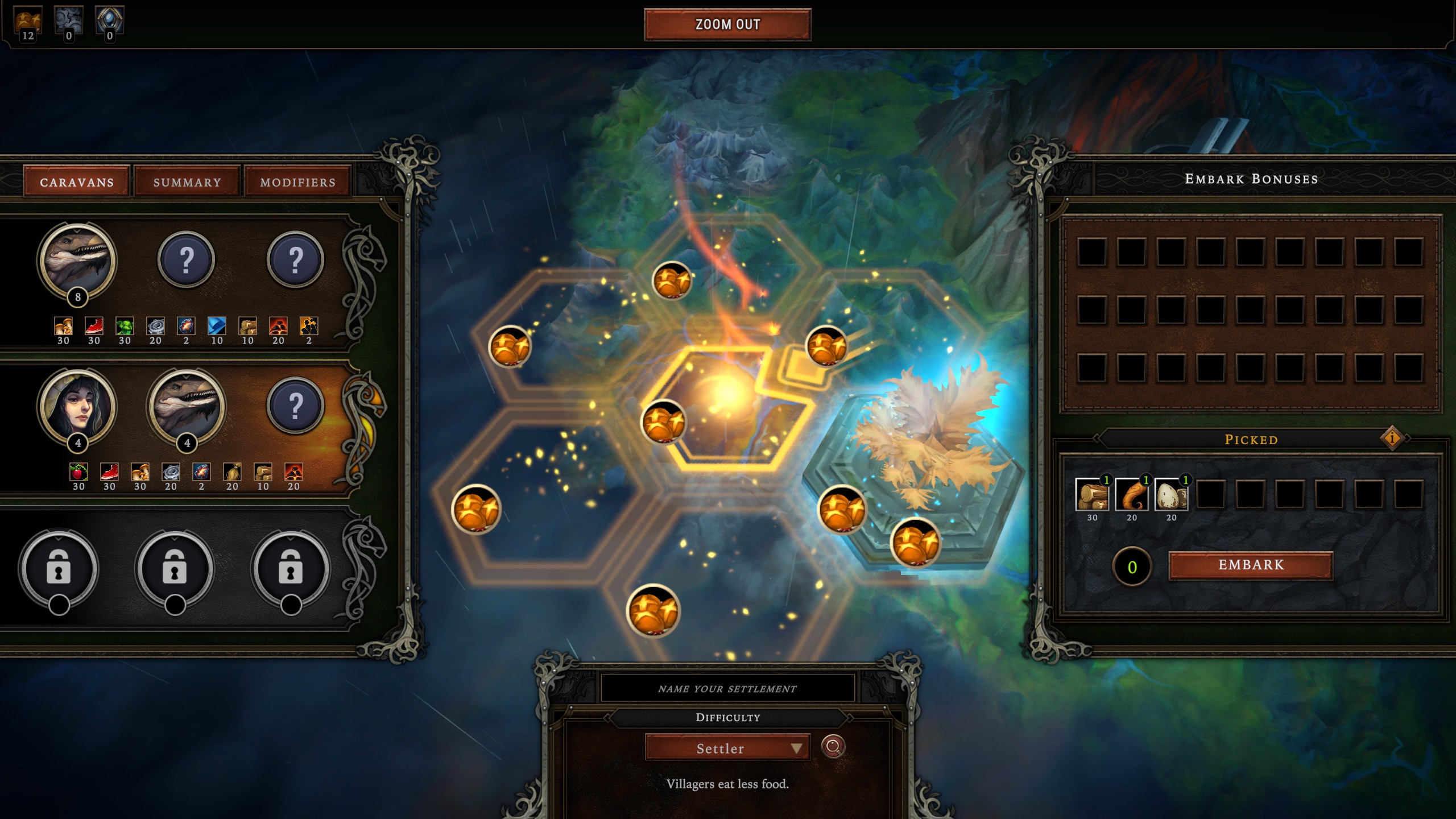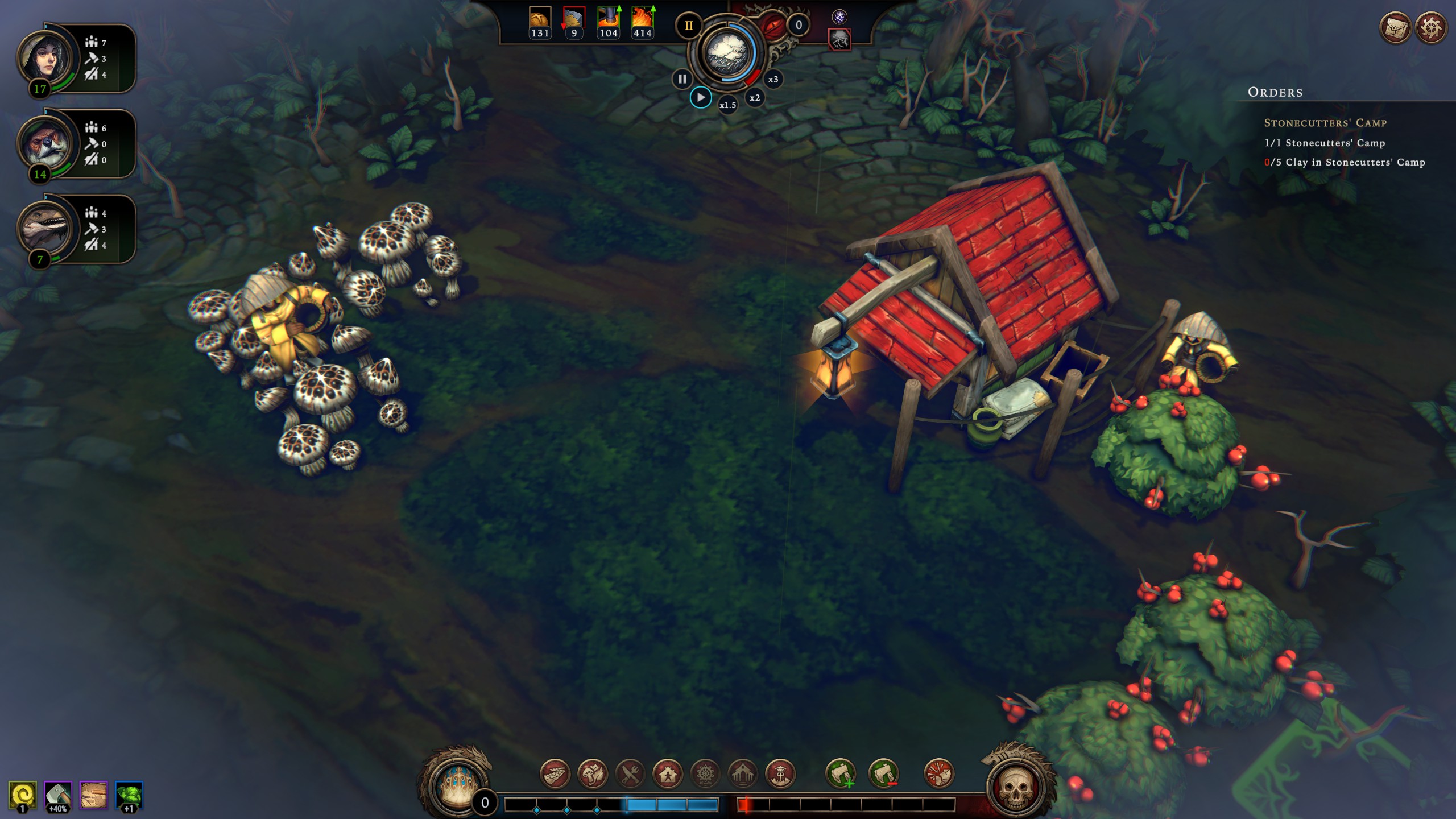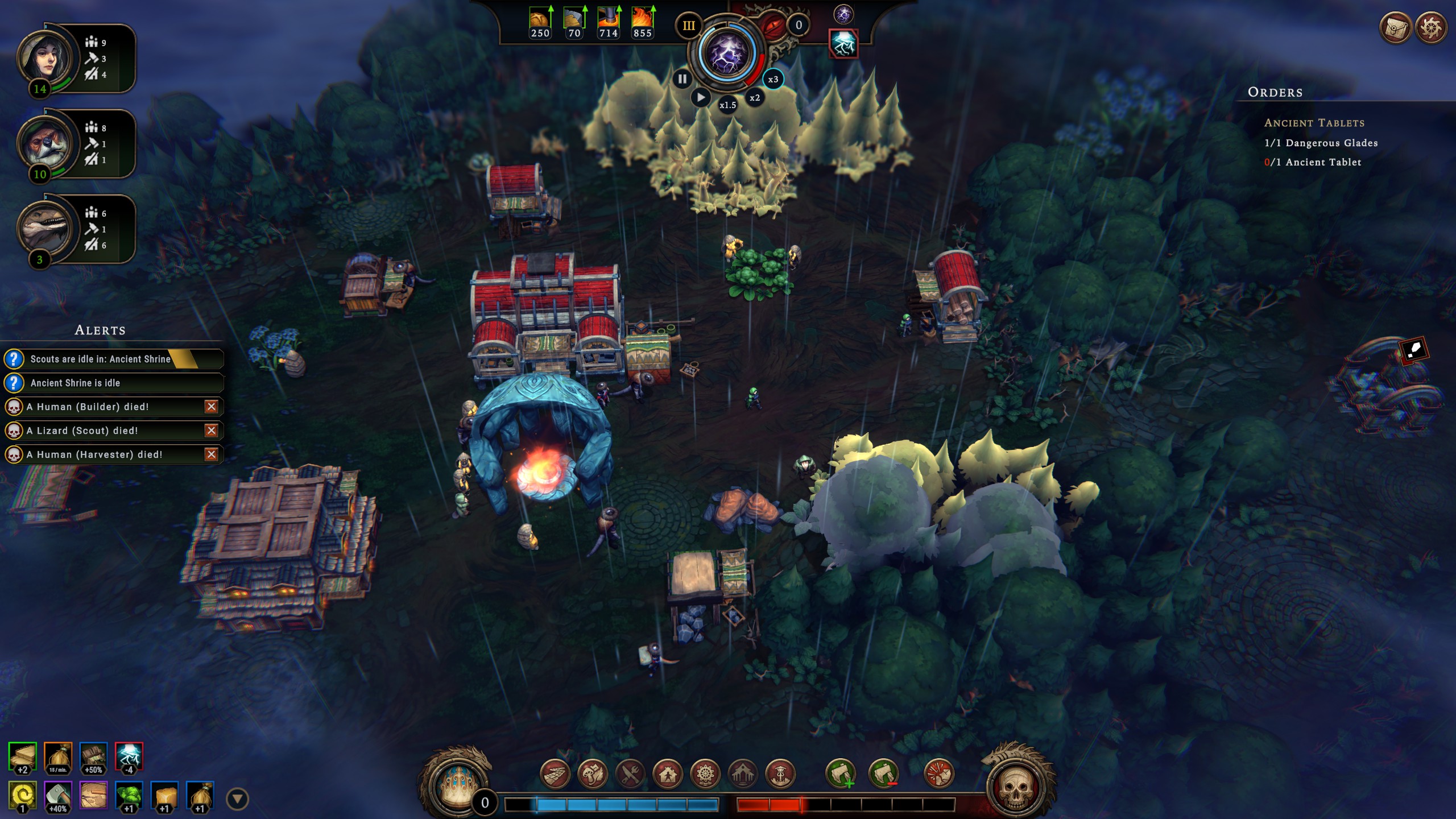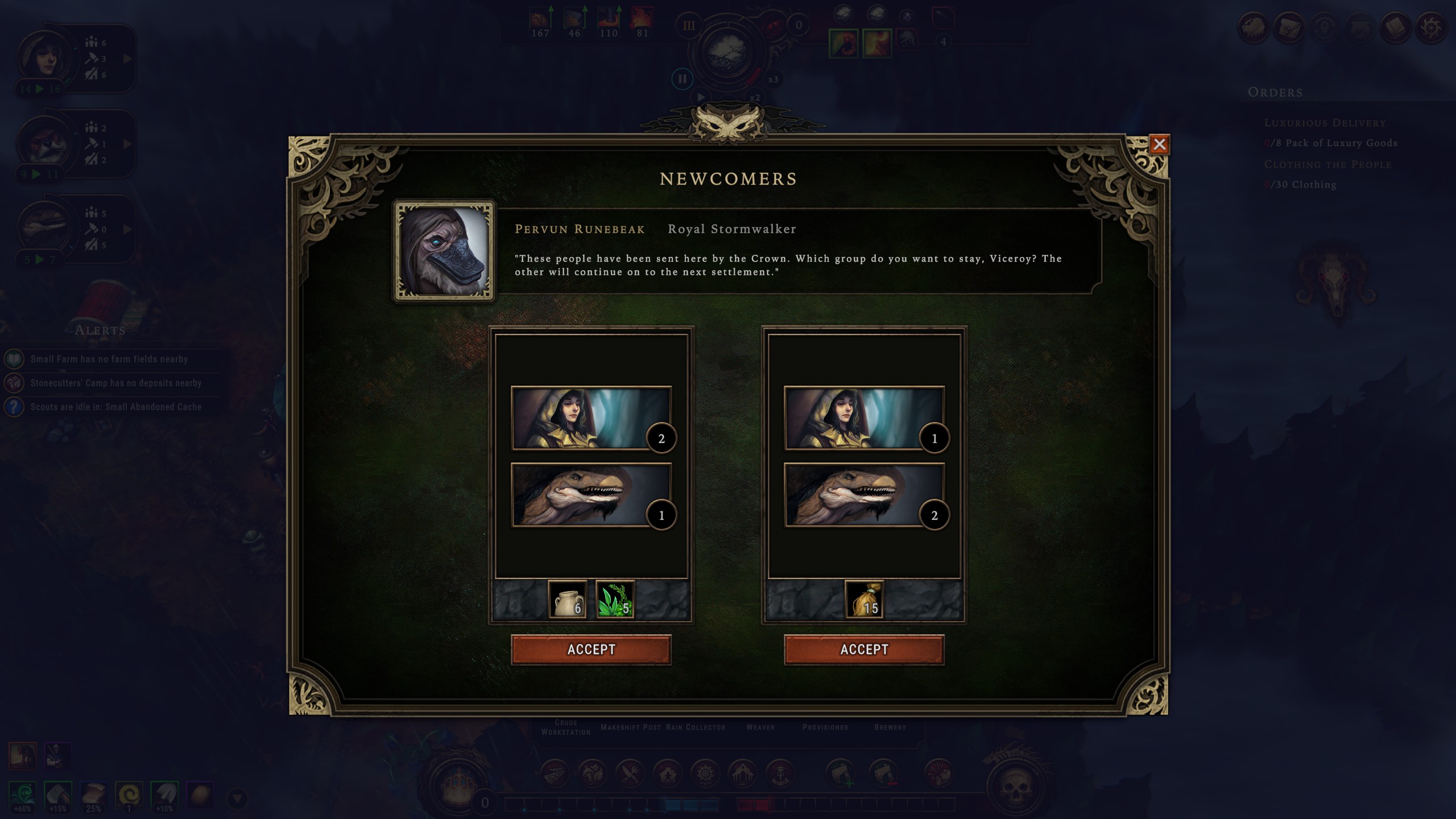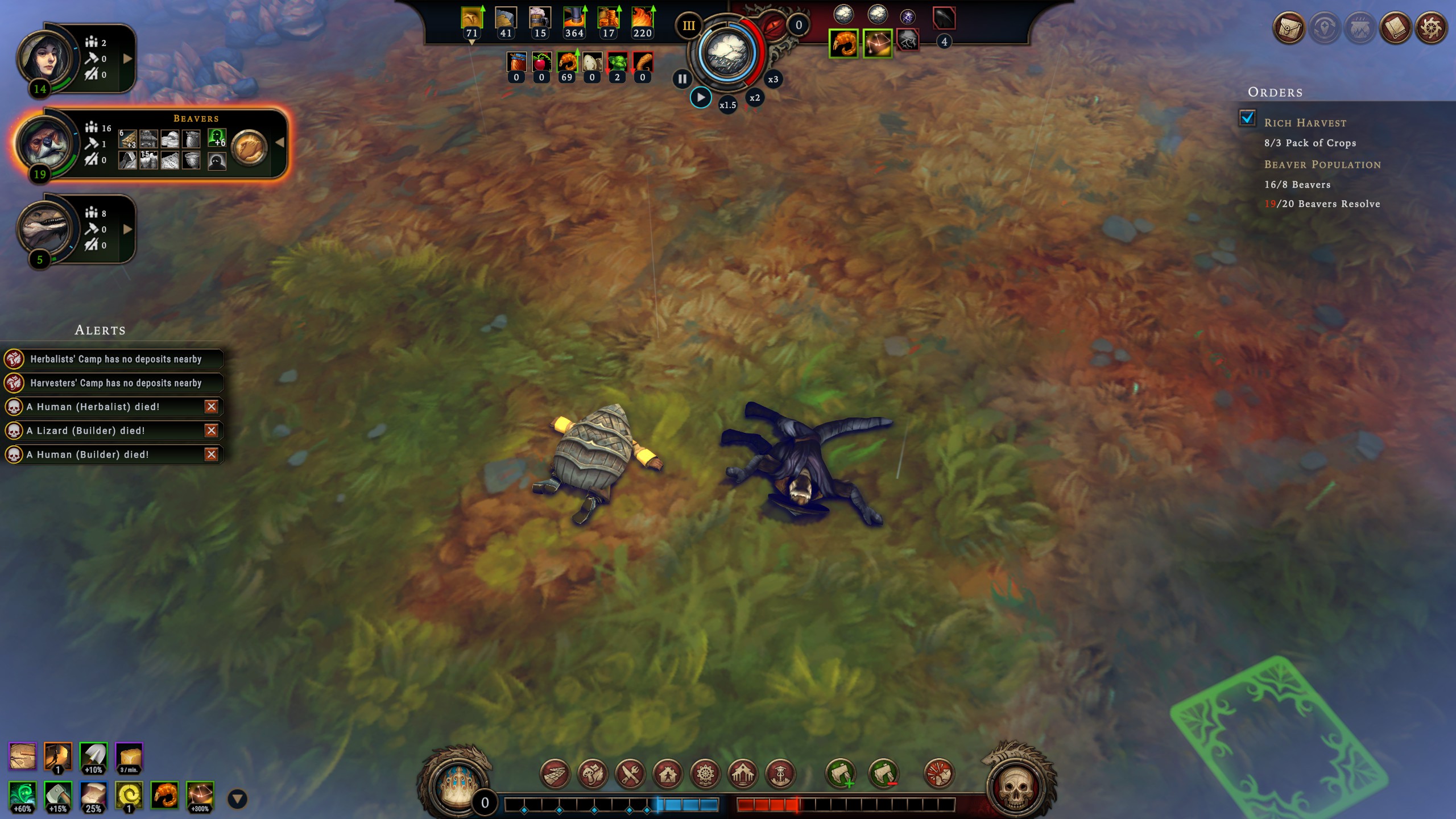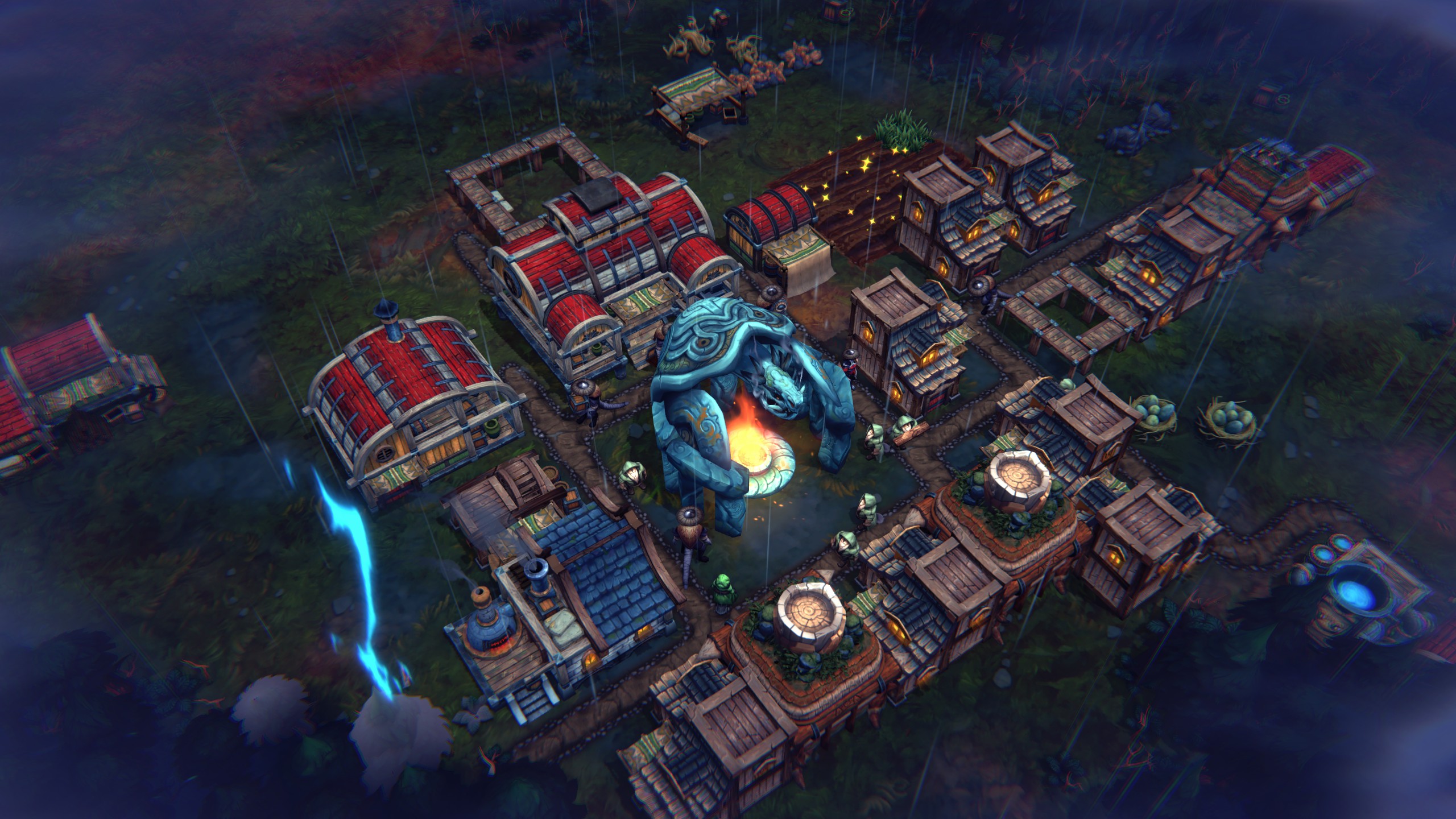Everyone hates me and I got fired by the queen in this roguelike city builder
Against the Storm is a post-apocalyptic city builder full of rain, beavers and lizards.
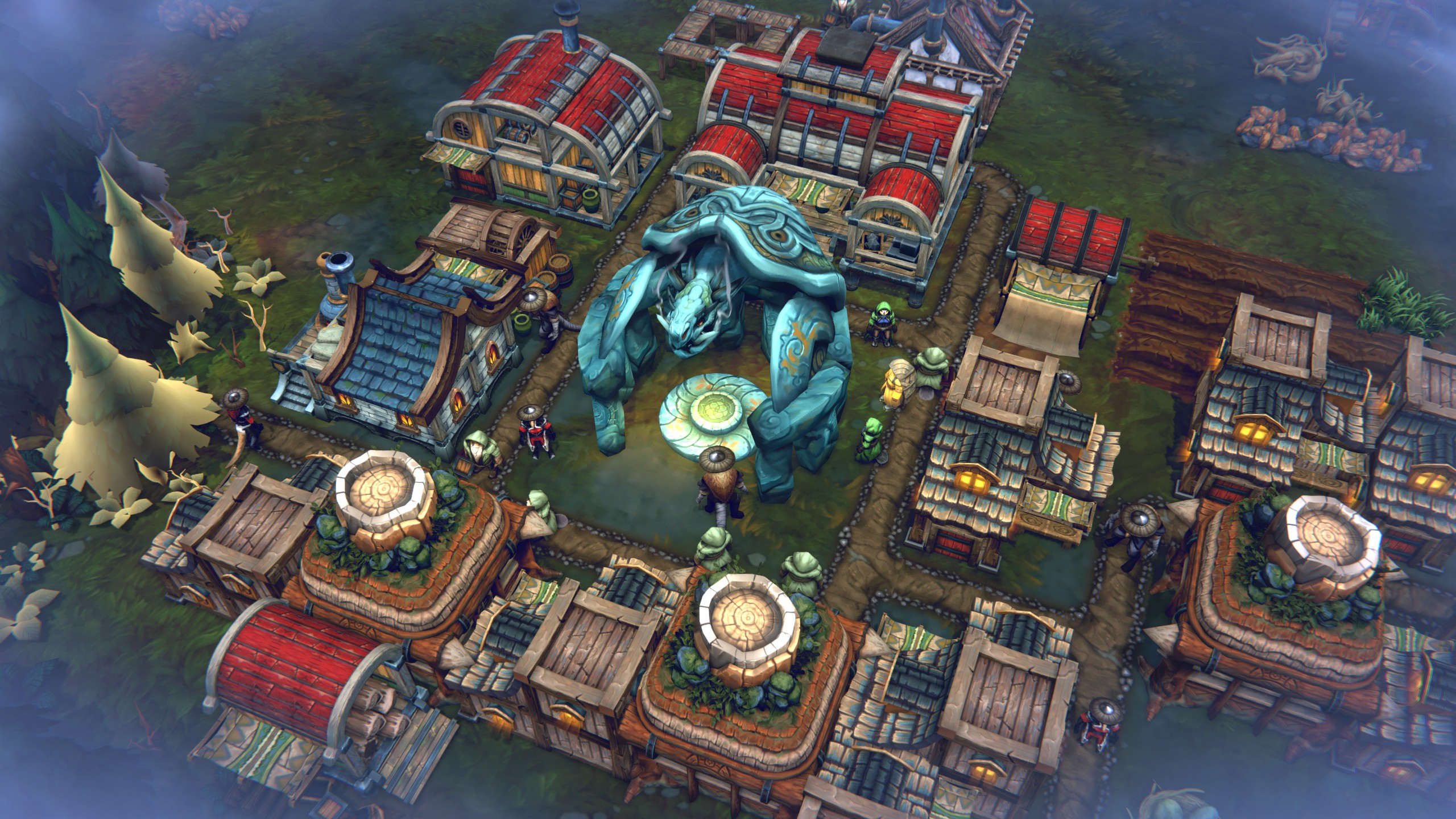
One of the byproducts of this era of survival city builders is that what was once a largely optimistic genre has become one full of stress, failure and grim scenarios, typically of the post-apocalyptic variety. Against the Storm continues this trend, but decides a regular post-apocalypse isn't bad enough—even after the end of the world, where a magical storm has destroyed nearly everything, I can still get fired from my desk job.
Against the Storm first appeared on the Epic Games Store last year, but it flew under my radar until it came to Steam, where it launched in early access this week. Even though gloomy city builders are increasingly common—I've got two more to play after this—it has a few tricks that set it apart, like your impatient boss and an unusual roguelike structure.
See, you're not some freewheeling city administrator expanding however you like, but rather an expedition leader beholden to a queen, tasked with setting up outposts in the wilderness. Each outpost is comparable to a room in a roguelike dungeon, and each expedition a roguelike run. These outposts exist to support the world's last city, which sits next to a volcano. The appropriately named Smouldering City can be upgraded between wilderness adventures, with new buildings offering boons to help you on the next leg of your journey. You'll need to travel across the hexy world, establishing new settlements and satisfying objectives that you'll pick from a randomised list, netting yourself reputation points that will allow you to move to another hex.
Before you start your outpost, you'll first need to select the caravan, which determines what villagers will be establishing the foundations of your new settlement, and what resources will be brought with them. It's not just humans joining you on your journey—lizards, beavers and eventually harpies will join your crew, too. Individual villagers don't have unique traits, but each species is distinct, composed of particular specialities, likes and dislikes. Humans are good with plants, for instance, while lizards love the warmth, being cold-blooded and all.
Happy villagers net you more reputation, and maintaining a certain level of happiness (or resolve, as it's called here) is a common objective, so your settlements can't be entirely utilitarian. Having various species with distinct needs makes this task pleasantly tricky—not to the point where you're focusing so much on making people happy that your other tasks will fall by the wayside, but enough so that you'll always be looking for opportunities to improve the mood of the settlement. You'll also need to be pragmatic.
If your outpost is mostly made up of beavers, you'll probably want to focus on keeping them content, ensuring that your lumberjacks are always working hard. You might start erecting beaver-specific homes, while the other residents are stuck with generic ones, if they aren't homeless. You can also select a favoured species, which automatically makes them happier, though you'll piss off the others. So while your woodworking and engineering industries will flourish, since that's the beaver speciality, your farms might suffer because all the humans quit.
The system provides you with plenty of opportunities for specialisation, but just as many wrinkles and risks, resulting in something that's engaging and fun to play around with. And if you don't pay attention to your outpost's mood and lots of people start leaving, you won't be able to complete your objectives and the queen will unceremoniously give you the boot.
Keep up to date with the most important stories and the best deals, as picked by the PC Gamer team.
Failure means the expedition is over, though resources and upgrades you've made to the Smouldering City are persistent, giving you a hand when you start your next one. And each little city-building challenge might be the one that ends you. The queen's displeasure constantly grows, and while you'll find yourself with plenty of objectives to help you raise your reputation, the random nature of Against the Storm means it's very likely that you'll find yourself in a pickle. A deadly pickle.
Pick and mix
When you start an outpost, you get some basic blueprints and your pick of a few specialised ones, effectively giving you a starting building loadout. But you'll never actually know what resources you'll encounter, or what challenges and objectives you're going to have to deal with. In my first outpost, one of my early buildings was a brewery, so naturally I decided I wanted this outpost to be full of pissheads. Unfortunately, I couldn't find the resources I needed to make containers for the boozy ambrosia. I'd already selected a bunch of boozy objectives, though, and ended up getting sacked before I could make anyone drunk.
This randomness could have ended up being a pain in the arse, but Against the Storm doesn't feel like it's setting you up for failure. Its flexibility serves as a bulwark against unpleasant surprises. But you still need a loose plan.
If I wanted my boozy outpost to succeed, I should have picked more human villagers, because they're the best at brewing, and I should have selected more objectives with rewards that would have filled the resource gap. Some cornerstones even give you a constant supply of a specific resource, which you'll earn passively.
This flexibility extends to your industries. Everything that your citizens can craft can be created from multiple sources. So the booze I desperately needed to create required barrels or pots. I was just unlucky that I couldn't find resources for either. But that's why I should have spent more time expanding the outpost and pushing back against the wilderness: to search for new nodes.
Outposts start out surrounded by thick forest with very little space for building. Once you've got some lumberjacks set up, however, you can start selecting trees in their vicinity, which they will diligently chop down. And if there are none left, you can simply move the woodcutter's camp to a new location, free of charge. This is the case with almost every building, which is extremely convenient in a game where resource nodes are largely finite.
As you expand, what you're looking for is a glade. Their locations are clearly visible, and there will always be a whole bunch of them nearby, though you won't actually see what they contain until you cut your way through to them. You might find resources, an abandoned cache or some kind of oddity that your villagers will need to investigate. There's always a cost or risk attached to events, like all your food starting to decay as your villagers dig through a puddle of living matter in search of valuable resources. In one glade I found an explosive device, and as my villagers were attempting to disarm it, it blew up, taking out a huge chunk of the forest and killing two people.
These glade events make expansion a lot less perfunctory—it's actually exciting. Once the lumberjacks chop down the last tree that's in the way, what are you going to find? A huge reward? Or maybe a poisonous miasma? The forest is a fickle place. It also might be sentient. As you chop down trees and expand, it grows hostile, upsetting your villagers more and more until they flee. There are multiple ways to reduce this hostility, however, one of which involves letting your queen's impatience grow. It's a tense tightrope walk.
You'll need to keep an eye on the weather, too. It rains all the time, but there are still seasons, and each has corresponding mysteries determined by the difficulty of the map and the type of biome. During the drizzle season, you'll only encounter positive mysteries, like unexpectedly clear skies that increase the speed of traders because it's easier to navigate. During storm season, however, the mysteries are always negative, like weird lights in the sky that distract your villagers, potentially leading to some destroyed resource nodes.
It's certainly never boring in this damp wilderness. You're always just one glade away from a surprise, one season away from another novelty. Both city builders and roguelikes are naturally repetitive—not always, to be fair, to their detriment—but despite having a foot in each genre, Against the Storm manages to continually spit out new threats, rewards and challenges that will ensure you never get too set in your ways.
Against the Storm is expected to stay in early access for at least six months, if not longer, but there's already a lot here. The Steam launch benefits from a year of extra development and polish, so it doesn't really feel like a work-in-progress. There's still a lot to come, mind you, and you can see what's on the docket by checking out the roadmap, which teases new systems, Twitch integration and a fifth playable race. I'm hoping for badgers. They're cute, they're smart and they're assholes. The perfect combination.

Fraser is the UK online editor and has actually met The Internet in person. With over a decade of experience, he's been around the block a few times, serving as a freelancer, news editor and prolific reviewer. Strategy games have been a 30-year-long obsession, from tiny RTSs to sprawling political sims, and he never turns down the chance to rave about Total War or Crusader Kings. He's also been known to set up shop in the latest MMO and likes to wind down with an endlessly deep, systemic RPG. These days, when he's not editing, he can usually be found writing features that are 1,000 words too long or talking about his dog.
